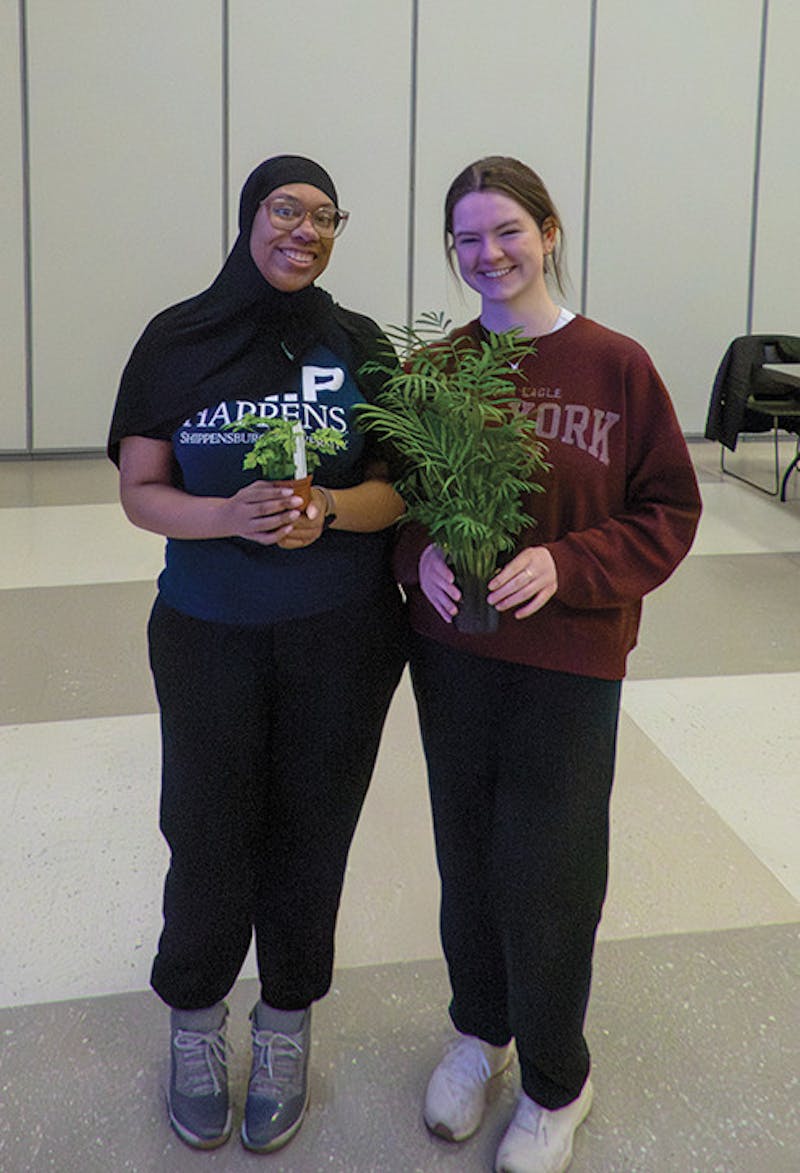On Monday night, author and researcher Tim Mousseau led a vulnerable conversation titled “MoMenTum: Changing the Landscape on Modern Masculinity.” This program invited students to reflect and redefine their ideas of masculinity. Mousseau shared personal stories about how his former perceptions of masculinity restricted him from handling trauma and establishing openness with his male colleagues.
Students and faculty gathered in the Ceddia Union Building MPR to engage in a compelling conversation about preconceptions and stigma surrounding the idea of masculinity. This conversation was conducted by Mousseau, a male sexual assault survivor who has devoted his life to researching and discussing topics such as sexual violence prevention and masculinity.
“If you ask a man about masculinity, they will respond with very significant stories about what it means to be masculine,” Mousseau said. “On the other side, when I ask people with different identities, I often hear other definitions that aren’t as positive.”
“Oftentimes, it’s easy to retreat into those ideas of what’s personal for us, while not recognizing it’s not the same for everyone else,” Mousseau said.
Mousseau shared a traumatic experience that motivated him to educate himself on the topic. Mousseau shared that while he was in college, he received a series of persistent death threats from an anonymous sender.
After weeks of neglecting to process his emotions towards the targeted letters, he was sent another letter containing photos of Mousseau being sexually assaulted while incapacitated.
“That day changed my life, because that was the first time I learned this happened to me,” Mousseau said.
Mousseau shared that when sharing the incident with others, there was a great deal of shame involved in those vulnerable conversations, which caused him to isolate himself from others.
“Usually a survivor’s first encounter will inform their healing process, and that was very true for me,” Mousseau said. “Because of that, I had felt so much guilt and shame about what someone else had done to me that I shut down.”
Mousseau shared that the lack of encouragement he was given to be vulnerable hindered his ability to heal from his assault. This allowed him to examine harmful norms that exist within masculinity, such as reprimanding his friends for joking about sexual assault.
“Part of the reason I decided to study this is because I wanted to reconcile what I knew to be this very positive concept in my life that I no longer understood,” Mousseau said.
During the program, Mousseau proceeded to express how embracing a healthier idea of masculinity helped him to adopt empathy-based strategies. This allowed him to welcome a more communicative environment with his male colleagues and overcome ineffective norms.
Mousseau also presented a series of sociological statistics regarding men and sexual violence. “When members of organizations or friend groups use derogatory and dismissive language towards sexual violence, members of those groups are more likely to engage in or become complicit in acts of sexual violence,” Mousseau said. “The language we use around these conversations very much matters.”
Combining original research with powerful stories grounded in personal experiences, Mousseau used passion and vulnerability to guide conversations that left students inspired to combat sexual violence, redefine masculinity and provoke change.
“Every one of us is impacted by these stigmas, whether we realize it or not,” Mousseau said. “My goal is that you can continue to have these conversations.”
To learn more about Tim Mousseau’s work, visit timmousseau.com. To learn more about masculinity from trusted and confidential resources on campus, visit the PAGE Center located in CUB 232 or visit the Women’s and Gender Studies office located in Horton Hall 125.



The Slate welcomes thoughtful discussion on all of our stories, but please keep comments civil and on-topic. Read our full guidelines here.